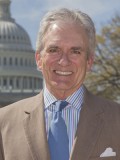 By Executive Director J. Brent Walker
By Executive Director J. Brent Walker
There is much to criticize in the U.S. Supreme Court’s opinion in the consolidated cases of Burwell v. Hobby Lobby Stores, Inc. and Conestoga Wood Specialties Corp. v. Burwell. The five-member majority gave short shrift to the question of whether any burden on the exercise of religion is “substantial” and ignored the real effects of the requested free exercise accommodation on the corporation’s employees desiring insurance coverage for contraception services. General Counsel Holly Hollman lays out our concerns in her column.
The picture, however, is not as grim as some critics assert. This column will take a look at the definition used for the word “person” and highlight a basis for a narrow reading of the decision that will discourage future attempts to expand the precedential effect to other, perhaps more dubious, free exercise accommodations.
First, we should be sensitive to religious liberty issues in the secular marketplace, including some for-profit corporations. The Court previously entertained — but ultimately denied — free exercise claims by an Orthodox Jewish clothing and home furnishings proprietor (Braunfeld v. Brown, 1961) and a kosher market that was organized by a for-profit corporation (Gallagher v. Crown Kosher Super Market of Mass., Inc., 1961). Moreover, Title VII of the Civil Rights Acts of 1964 requires reasonable accommodation of religion in businesses with 15 or more employees. The Religious Freedom Restoration Act (RFRA), the law that was applied here, incorporates a definition of “person” that includes “corporations.” And, religious liberty principles are applied routinely to houses of worship and other religiously affiliated organizations that are often incorporated.
Thus, the Court correctly declined to summarily disqualify the secular marketplace in general — or for-profit corporations in particular — from enjoying religious liberty protection. Although one could reasonably argue against a corporate behemoth as large as Hobby Lobby (with 16,000 employees!), there should be some protection for closely held “mom and pop” businesses, even when conducted through the corporate fiction.
Second, although the majority ignored its own precedent that holds adverse effects of religious accommodation on third parties can violate the First Amendment’s Establishment Clause (Estate of Thornton v. Caldor, Inc., 1985), it did assume for purposes of argument that the government has a “compelling state interest” in protecting the health, safety and welfare of employees wishing to avail themselves of contraception coverage. The Court’s majority then ruled, however, there was a less restrictive way for government to accomplish that compelling interest under RFRA than the Affordable Care Act’s mandate. The Court ruled the accommodation that the federal government had already given to religiously affiliated nonprofits could be provided here to both protect the conscience of the owners and extend the protection of the Affordable Care Act to third-party employees. Although the Court entered a temporary injunction several days later preserving Wheaton College’s argument against that form of accommodation, it strains credulity to believe that a majority of the justices would not uphold its constitutionality.
Finally, we can take some comfort in Justice Anthony Kennedy’s concurring opinion. Although he joined in the Court’s opinion — thus making a thin majority of five — he took the time to write separately. Justice Kennedy emphasized the limited nature of the Court’s opinion. He held up the importance of the Court’s assumption that the Affordable Care Act “furthers a legitimate and compelling interest in the health of female employees.” He also was more attentive than the majority opinion to the need to protect the rights of third parties. After noting the importance of the accommodation of religion in our religiously plural culture, he stated firmly that accommodation may not “unduly restrict other persons, such as employees, in protecting their own interests, interests the law deems compelling.” Thus, the need for Justice Kennedy’s joinder as a fifth vote on any viable Court majority would likely temper willy-nilly extensions of the holding in Hobby Lobby beyond the confines of its own terms.
Despite this understanding of the case, several ideas have been proffered to limit the effects of Hobby Lobby. A bill that would prohibit employers from denying contraception coverage has already failed in the U.S. Senate. Others have suggested limiting the protections in RFRA to for-profit corporations with fewer than 15 employees (thus truly embracing the spirit of a “mom and pop” exception). At least one scholar advocates amending RFRA to compel the courts to consider and make explicit findings on the effect of an accommodation on third parties.
Responses to Hobby Lobby on the part of either Congress or the administration are complicated by the upcoming elections. Suffice it to say that we should not rush to fix something until we fully understand its ramifications. For our part, the BJC will look askance at attempts to amend RFRA. We have too much invested in it to allow one Court decision, for better or worse, to prompt an emasculation of that very important statutory protection for religious liberty.
Read General Counsel Holly Hollman’s “Examining RFRA in light of Hobby Lobby.”
From the July/August 2014 Report From the Capital. Click here to read the next article.
Click here to view the entire magazine as a PDF document.





